#Sustainable Consumerism
Explore tagged Tumblr posts
Text
Even the thrift shops are filled with fast fashion now

21K notes
·
View notes
Text
MT#1291 Save the Planet
Hi martoons fan! today’s image artwork is be Charlie Nutter of Duncan, BC, based on the original sketch by marty west.
0 notes
Text
#Benefits Of Repairable Gadgets#Electronic Waste#Repairability Score#Repairable Electronics#Right To Repair#Sustainable Consumerism#Sustainable Technology Practices
1 note
·
View note
Text
if you haven’t at least tried sewing or crocheting or knitting your own clothes, you really should. even if it’s just one time and you never do it again, i really think everyone should do it at least once
learning how to crochet was what finally made me grasp the abject horror of the fast fashion industry and realize just how laborious and time consuming it is. i have to take a few days off a week so my back/wrists don’t get sore — and i get to do this as a leisure activity in the comfort of my own home, rather than in a sweatshop. it takes dozens of hours to produce a single item. there is just something about trying it yourself that makes you realize just how little the people making our clothes are being paid for retailers to be able to sell clothes at such obscenely low prices.
i understood in the abstract that people were earning literal slave wages to make my clothes, but that concept wasn’t real to me in a way i could understand until i spent 14 hours making something that i myself wouldn’t have even been willing to pay more than $10-20 for if i saw it in a store.
i have not bought any new clothes since learning how to crochet. every time i see clothes at a store (especially obviously handmade items like crochet), and i look at the price tag i feel genuinely sick to my stomach.
i’m not saying everyone needs to make their own clothes in order to be against fast fashion, but what i am saying is if hearing about the conditions and wages secondhand has not been enough to make you stop buying it, if you find yourself becoming desensitized to the suffering of the people who make your things, you should try making something yourself.
you need to see firsthand how physically and mentally demanding it can be and imagine how much worse it would be if you were forced to sit in a sweatshop for 16 hours a day doing it nonstop, earning pennies an hour to do so. you need to spend weeks laboring over something only for it to turn out looking like shit so you realize just how much wisdom and technical skill goes into these supposedly “unskilled” and undervalued jobs. if the abstract concept isn’t enough to get through to you, then you need to get hands on.
#abolish fast fashion#fast fashion#shein#temu#h&m#sustainability#sustainable fashion#sustainable living#diy fashion#sewing#knitting#crochet#anti consumerism#anti capitalism#working class solidarity#sweatshops#ethical fashion#labor rights#star’s posts
2K notes
·
View notes
Text
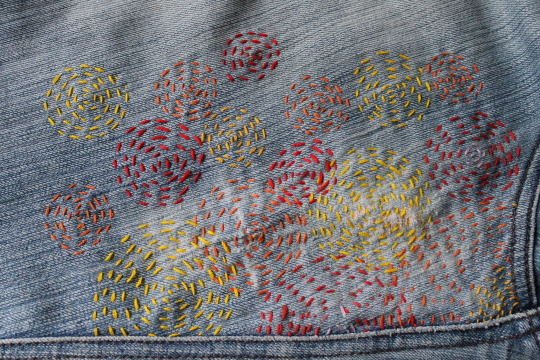
i got these jeans from a friend of mine and they had paint-stains in red and orange and started to fade in the crotch so i put a patch underneath and embroidered this fancy circles on the outside as my in-between-the-years-project :D
#visible mending#solarpunk#embroidery#anti consumerism#sustainability#sustainable living#mending#winterproject
340 notes
·
View notes
Text
talking about different needs of different people is so so so important but the way the (anglosphere?) online left has just pivoted to misappropriating disadvantaged communities needs to justify overconsumption is wild.
Pretending that criticizing someone for promoting mindless accumulation of fast fashion, plastic trash or international travel is the same as telling a person who relies on sterile medical products they cannot have them anymore, or telling someone living on the poverty line to only buy fair trade produce is arguing in very bad faith.
People feel attacked and threatened when their consumption is questioned, and instead of admitting to that they pretend to fight the fight for someone with less privilege than them. And it conveniently makes it so that no one actually has to give up any privilege. Shopping second hand is actually classist appropriation. Criticizing restocking TikToks is anti autism!!! Telling people to try and reduce airtravel is actually being a billionaire bootlicker!!
If your personal progressive ideology makes it so that everyone who asks you to question your personal habits is a bad person then maybe you need to reconsider if you aren’t actually a conservative.
108 notes
·
View notes
Text
Week 6: Mending Over Buying
If you told your grandparents that mending clothes is now considered a “climate-positive action,” they’d probably laugh. Back in the day, fixing up torn clothes wasn’t some bold environmental statement; it was just common sense. Clothes were expensive, and people made them last. Every household had a sewing kit, often stored in an old cookie tin on top of a cupboard. Mending was simply a necessity.
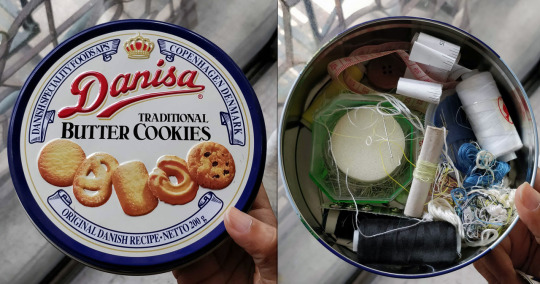
Fast Fashion: Cheap, Trendy, and Designed to Fall Apart
Fast forward to today, and things have completely flipped. Thanks to fast fashion, clothes have never been cheaper or more disposable. Why bother sewing a ripped shirt when you can replace it for the price of a cup of coffee? Fashion brands flood stores with trendy, poorly made clothes, designed to fall apart quickly so you’ll keep buying more (Bau 2017). As a result, the fashion industry generates more than 92 million tons of waste each year, while clothing production consumes approximately 79 trillion liters of water (Niinimäki et al. 2020). The industry create new styles at a ridiculous pace, encouraging us to constantly refresh our wardrobes and throw out the “old” stuff (even if it’s only been worn a few times).

Fast Fashion’s Biggest Scam: Making Us Stop Caring
But here’s the real problem: fast fashion hasn’t just made clothes disposable, it’s made our connection to them disposable too. Most of us have no idea how our clothes are made, who makes them, or what it takes to create a single garment. More disturbingly, we don’t care. When something tears or wears out, we don’t think about fixing it because we’ve been trained to see it as replaceable. And that’s exactly how fashion brands want it. This mindset comes from advertising that promotes the idea that new is always better than old (Bau 2017). The less we care, the more we consume.
As The Guardian puts it, our disconnect from the things we own has left many of us feeling alienated. Karl Marx once said that for work to be fulfilling, it has to be meaningful, honest, and effective. The same goes for the things we own (Martin 2021). When we replace well-made, personal belongings with mass-produced junk, we lose our sense of connection to the things around us. We don’t see clothes as valuable anymore, just as stuff to cycle through. It’s all about chasing the next trend and never actually be satisfied with what we already have.
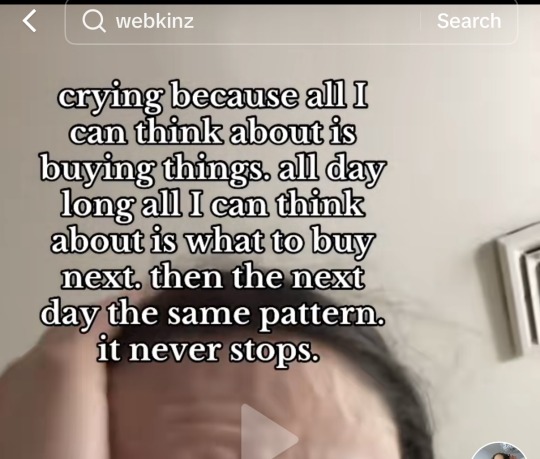
Mending is a Quiet Rebellion
Mending is a quiet act of rebellion against all of this. It’s a way of saying, "No, I don’t need to keep buying just because a brand told me to." When you repair your clothes, you’re taking control. You’re refusing to throw something away just because a tiny rip appeared. And honestly? Mended clothes look cool. Visible stitches, patches, and embroidery make each piece unique; something mass production can’t replicate (Jones & Girouard 2021). It’s not just about making clothes last longer; it’s about rejecting the idea that you need to buy new things all the time to feel stylish.

The fashion industry thrives on making us feel like we’re always behind, always needing more (Williams 2022). But what if we stopped playing along? Mending is not only about sustainability but also about taking back power from an industry that survives by making us feel inadequate.
So grab a needle. Repair the damage; not just to your clothes, but to the way we see fashion itself.
References
Bau, M 2017, Fast fashion and disposable item culture: The drivers and the effects on end consumers and environment, 5 May, Helsinki Metropolia University of Applied Sciences.
Jones, L & Girouard, A 2021, ‘Patching Textiles’, Creativity and Cognition.
Martin, M 2021, Mend your clothes and do yourself some good, the Guardian.
Niinimäki, K, Peters, G, Dahlbo, H, Perry, P, Rissanen, T & Gwilt, A 2020, ‘The Environmental Price of Fast Fashion’, Nature Reviews Earth & Environment, vol. 1, no. 4, pp. 189–200.
Williams, E 2022, ‘Appalling or Advantageous? Exploring the Impacts of Fast Fashion from Environmental, Social, and Economic Perspectives’, Journal for Global Business and Community, vol. 13, no. 1.
#mda20009#fast fashion#sustainable fashion#consumerism#recycling#tailoring#fashion industry#mending#clothing repair#slow fashion#environment#environmentalism
39 notes
·
View notes
Text
#Visible mending#anti fast fashion#anti consumerism#sustainable fashion#Tiktok#sustainability#Mending loom#mending#sewing#loom knitting#knitting#Anticonsumerism
921 notes
·
View notes
Text
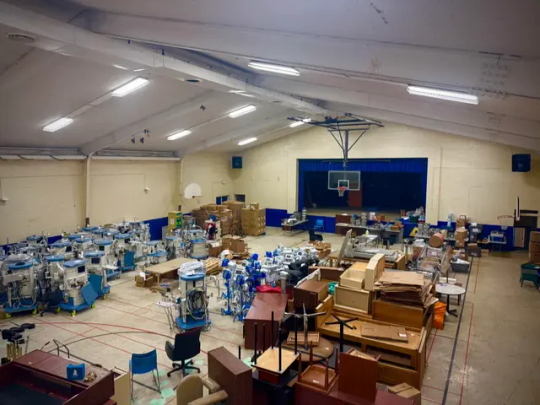
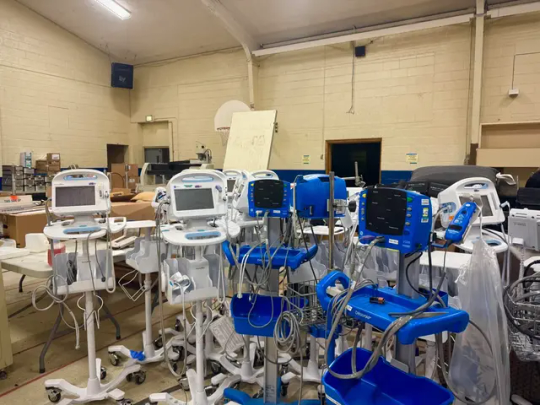
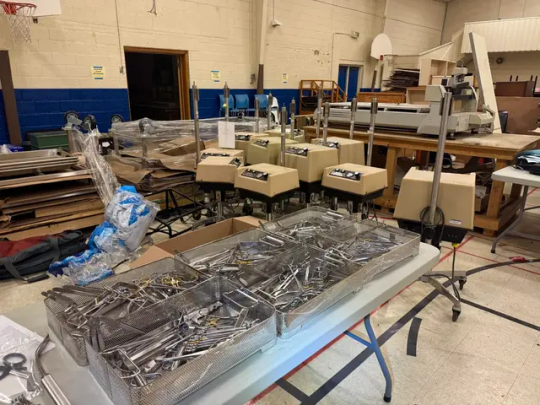

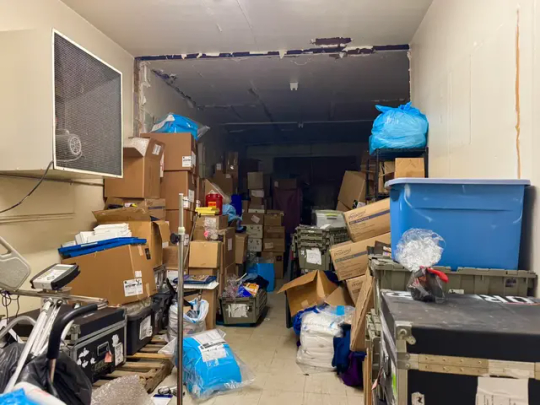

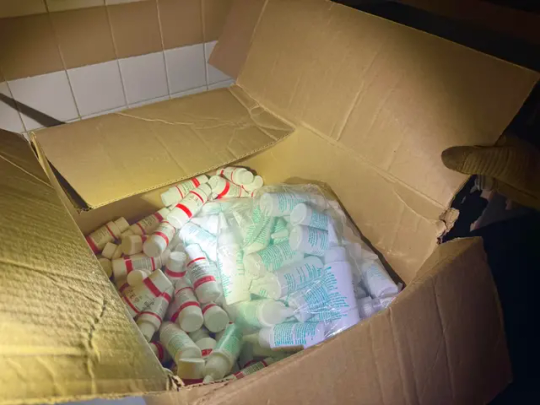
...
Elementary school turned COVID-testing center with over half a million in equipment left to rot.
Courtesy: wuhmee
#art#photography#abandoned places#abandoned#urbex#urbexphotography#urbexsupreme#zombilenium#abandoned school#long covid#still coviding#covid 19#covid conscious#pandemic#sars cov 2#public health#sustainability#consumerism#consumer culture#shame#political justice#social justice#health care#america#usa politics#rot#wuhmee#health security
32 notes
·
View notes
Text
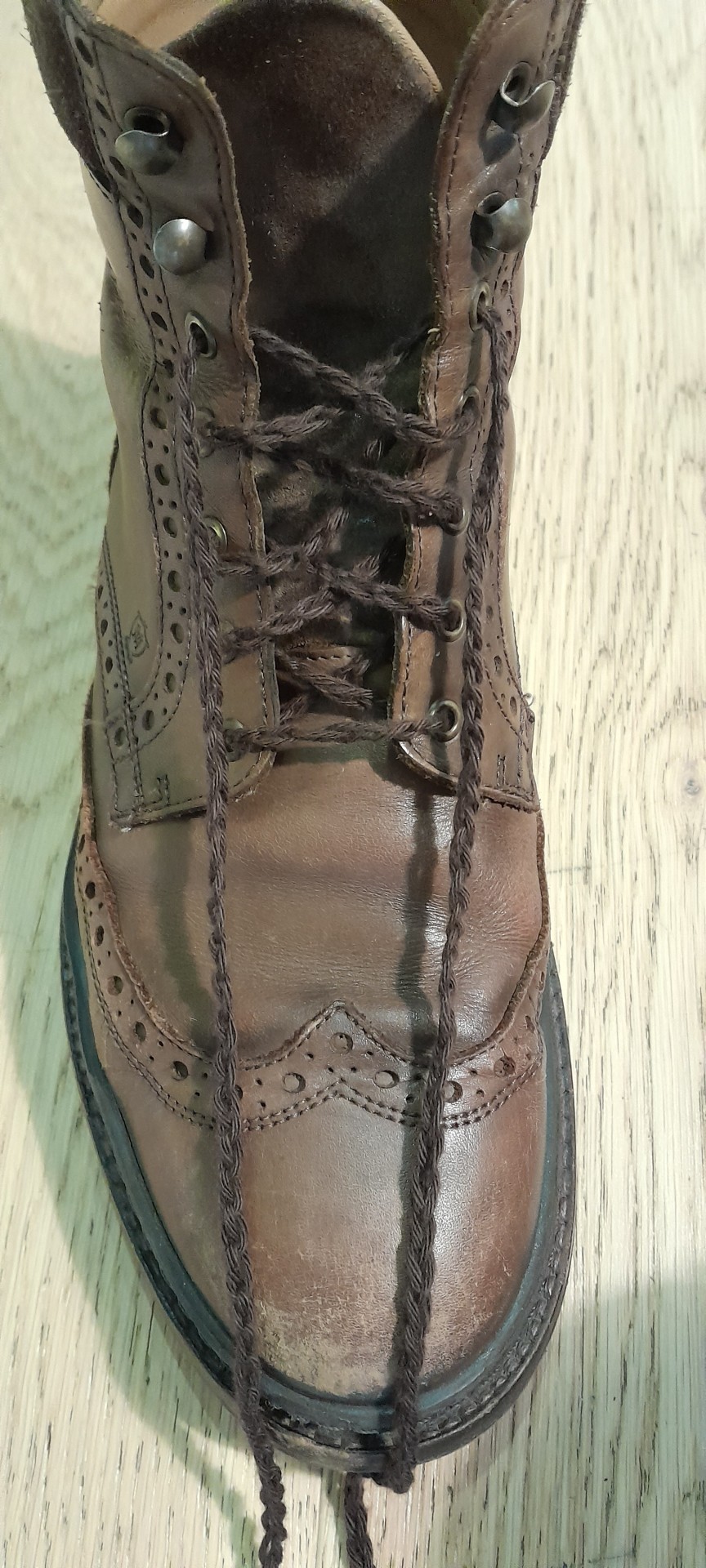
The shoelaces in this boot finally gave up the ghost so, after toying around with the idea of using ribbon, I decided I'd crochet a new lace with some yarn I already had. Very pleased with the result I have to say, they were the right length first try and fit perfectly in the eyelets. Now to see if they stand the test of time! The right book still has the original lace so it'll be a good chance to check in on this one when it also breaks.
43 notes
·
View notes
Text
This hunger you all have for the newest thing
Makes it hard to appreciate what we have
Automatic artificial dopamine baja blast
Stop drinking the cool-aid
Learn for the past
Repeated or recycled
Can’t you see through the scams?
But I guess when stolen designs are only $9.99
It’s easy to put your morals aside
#us politics#history#tiktok#america#politics#deny defend depose#donald trump#history repeats itself#original poem#poems on tumblr#thrifting#shop local#cult#temu#shein#fast fashion#sustainability#late stage capitalism#consumerism#second hand fashion
28 notes
·
View notes
Text
HOT GIRLS ARE CONSCIOUS.
I haven't been on Tumblr in about 3 months (life has been busy), and when I finally decided to check back in today, I kept seeing the same thing over and over again, so I am here to dispel some myths.
If you have seen any of my posts, you will know the issues I have with traditional TikTok-y trendy 'glow-up' advice, but today I realised how much of it is just a ploy to get us to spend tons of money on things we CAN live without. I think we all need to be more CONSCIOUS: conscious of what we can realistically afford and implement into our daily lives.
For example, in a typical 'glow-up' advice post, tiktok or youtube video, they recommend these super unrealistic routines that include a full skincare routine of every type of cream you could ever imagine, and an incredibly detailed list that lays out how you need to spend every 10 minutes of your day in order to achieve this perfect form.
It's all hear-say.
Don't get roped into thinking that you need those brand new clothes, or you need those skincare items to be your best self. The idea of turning your 'glow-up' into a sustainable part of your life is to do things you can manage to do over and over again. The secret to glowing up permanently is having a routine that keeps you happy and healthy. Instead of buying a full shelf of skincare all in one go, get 1 or 2 items with positive reviews to start. You don't need to throw out your whole wardrobe and sell your soul to TEMU just to look aesthetic; use what you have. Rather than making short term impulsive purchases, treat every part of your life as an investment.
Especially when it comes to clothing, being someone who has lost weight and no longer fits into all their old clothes, instead of throwing everything out and starting from scratch, I bought a little amazon sewing kit with a couple of needles and different types of thread and started cutting and sewing my way to a better wardrobe. (Even TODAY, I turned an old pair of jeans that I never wear into a cute miniskirt all from a 5 minute YouTube tutorial.) If sewing isn't your thing, you can try using some hemming tape and an iron, fabric glue, or whatever you can. Be conscious of the things you buy and how often you buy them.
I know lots of people like thrifting, and you can thrift online with apps like Vinted, which I personally use and love, if you don't have access to massive thrift stores like they do in America (I'm totally not jealous at all 🙄🙄; I live in the UK and the closest things I have near me are charity shops but there's a sort of stigma around shopping in them but honestly who cares what others think).
When you shop for clothes, look for timeless and versatile pieces you can mix and match, layer and style with lots of different things, allowing you to wear them well. Try to find good staple pieces, that will make the basis of your wardrobe. Be an outfit repeater. Do not blindly follow trends; take the time to curate and explore to find your style. Make a massive Pinterest board of everything you think looks good, and start to make a list of common items of clothing and accessories you save the most; these will be your staples. Don't feel like you have to stick strictly to one aesthetic; my wardrobe ranges from 'fairycore' maxi skirts to y2k denim skirts, but what matters is that I am mindful of whether I will use the things I want to buy.
Of course, feel free to treat yourself, you 100% deserve it, but don't get sucked into the idea that your self worth is determined but WHAT you have; instead it should be how you FEEL in what you have.
I like to see my blog as a little notebook of things I wish I could have told my younger self, and things I want to remind my future self, and I feel like it would be a disservice to not talk about the oversaturation of our feeds with infinite products, to the point where everything feels like an AD.
Moral of the story: don't just take everything you see online at face value. Don't get trapped in extensive consumerism; it's bad for your bank account, it's bad for the environment and it's bad for your mental health.
Also here's my Pinterest if you want to have a peek around <3 Pinterest
#lifeblr#self improvement#becoming that girl#girlblogger#girlblogging#it girl#self care#that girl#consumerism#thrifting#sustainability#sewing#think before you buy#there's enough to go around for everyone
121 notes
·
View notes
Text
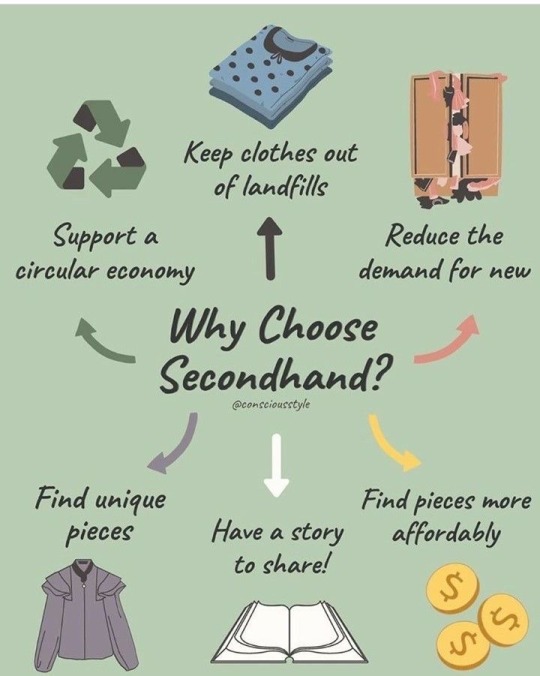
#thrifting#thrift store#thrift shop#shopping#retail therapy#consumerism#sustainability#earth#mother earth#mother nature#community#pagan#healing#nature#self care#fashion#fashion haul#clothing#photos#not mine
144 notes
·
View notes
Text
Easy zero waste tip no. 3: Know your R's
Refuse: If you don't acquire the thing that will become waste in the first place, it won't produce further waste. Simple enough. Refuse that which you do not need. Example: All that cute stuff on that Buzzfeed article? You don't need it. Don't even click the link.
Reduce: If you need something, get the minimum. Note that this doesn't mean the cheapest option- it means the most effective and environmentally friendly option. Example: Instead of buying disposable razors, or a razor with changeable heads, try out a safety razor. Instead of using plastic toothbrushes, try out bamboo, and instead of toothpaste in disposable tubes, try out some toothpaste bits. Instead of buying chicken breasts for one thing and chicken broth for another, get a whole chicken and learn to butcher its meat, and make broth from the skin and bones.
Reuse: This means both being mindful of purchases, so you're only buying things that are reusable whenever possible (Example: use beeswax wrap instead of saran wrap), and repurposing things you've already bought (Example: use those little Oui yogurt containers to start seeds for your garden).
Recycle: Find out what your local recycling program actually recycles, and be mindful. Aluminum is a safe bet most of the time, as is paper/cardboard; but plastics, most of the time, are a dud, so try to refuse, reduce, and reuse plastic whenever possible so you don't even need to worry about recycling it. This also refers to donation- that's another valid way to recycle things!
Rot: If you have a yard, start a compost pile! Just try to get a 50/50 balance of food scraps to brown matter (paper, dry leaves, etc). If you have a freezer, you can stick a container in there to act as a compost thing until you can bring it to a compost facility, such as a local garden, or farm. If you don't have the ability to do either of these things, then you can see if there's a subscription compost service in your area (I used CompostNow for ages, they're great).
Understanding these five principles, and looking at them in this order, can make things easier. Next time you're buying something, or about to throw something away, consider which of these might allow you to reduce your waste output in the future.
#zero waste#sustainability#anti consumerism#anti consumption#eco friendly#sustainable#environment#five r's#refuse reduce reuse recycle rot#reduce reuse recycle#recycle#ecofriendly#recycling#compost#composting
257 notes
·
View notes
Text
There is so much more waste out there then your brain can imagine.
That’s a fact. There is SO MUCH waste out there just in clothing alone. After it’s been ‘consumed’, we think to donate it to give it another life. When that happens to literally millions of items, the chance of what was formally your stuff getting that well deserved second chance is diminished significantly.
I’m going to give you guys a tiny behind the scenes on a warehouse I’ve partially toured yesterday for a job. It was at a goodwill location with a bin style layout for second hand consumers. The crowd of people there were of all ages and backgrounds. The moment one of the workers put a fresh bin out, they swarmed it to pick through it like a horde of zombies.
The warehouse portion of the store was as huge as your mind could think of in terms of ‘large spaces’ but bigger. I had to follow one of the associates to the offices to interview, and I slowed to look at the literal HUNDREDS of gaylords stacked in 2’s in the middle of the storage space. Every single gaylord was stuffed with clothing. If you don’t know, a Gaylord is a really big foldable cardboard box that bulk stuff like produce get shipped in. It didn’t even hit me that all of them were packed to the brim with clothing until I rounded one of the corners to see the other side of the gaylord wall, were I saw the clothing bales. Visually, it was an assault to the eyes; there was so much to see but you couldn’t just stop to gawk at it all. As I walked through, I couldn’t help but to think of how much that all must have costed first hand. How much is a normal long sleeve t shirt, $25+? Multiply it by 10,000+ in every color of the rainbow, every mix, every match, every style, and without repeating your outfits. In long sleeve shirts alone, that’s a staggering $250k. Jeans and denims are popular right now and are flooding first hand brands and trickling their way to thrifts/second hands. According to my fast research online, both men’s and women’s brand new store brand are selling for upwards of $156 on average. Ask yourself, “how many pairs of jeans do I see at my favorite thrift stores? How many racks of jeans are available second hand right now?” and see if you can come up with a number. Sense denim jeans are so common, I could reasonably use the same 10k number for the estimated amount of jeans that are in that warehouse right now and say with some level of confidence that there are at least $1,560,000 in new/like new garments hidden beneath the rest of the unwanted clothing. The numbers, on all sides, were staggering and sickening to think about. If people took the time and effort to do so, I promise you they could have stacked all of the items (both folded and unfolded) to the ceiling.
Backing away now from those dizzying numbers; coming out from the warehouse portion and back to the bins, I was near breathless. ‘Breathtaking in a queasy way’ is my best way of conveying my experience with facing, head on, how much people are consuming and discarding. I can say with absolute confidence and certainty that everything you’re seeing and reading online about the waste/pollution problem in the clothing world is true. This is one of those issues that you can only really display online to get your point across sadly, and that might take away some of the reality of the problem. The rampant message to consume more and more of the clothing that these big brand stores are offering at every opportunity they have is one issue in a sea of many, but we can start to solve it ourselves. The power to do so is in our own hands sense this is a social issue that we have to tackle together. This isn’t an issue that a government can give an answer or a set of answers for.
I encourage you to take the deep dive into your wardrobe when you have time to pick out what you’re wearing and not. Ask yourself, “What makes me wear this? What makes this shirt worth keeping? What element of this style of garment do I like, and why do I like it? Why am I keeping this if I haven’t thought about or touched this item in the past 6 months to a year?” And see what your answers are. Separate your worn from your unworn and see what can reasonably be recycled or repurposed at home before it goes to the thrift.
Be passionate about preventing waste. Maybe one day, we won’t have to worry about the mountains of clothing and items stuck in warehouses and in dumps. For now, take it slow.
#recycled words#diving haul#dumpster stories#reduce reuse recycle#zero waste living#zero waste#freeganism#zero waste lifestyle#clothing waste#thrift#thrifting#rapid consumption#slow living#slow fashion#anti consumerism#anti capitalism#anti fast fashion#fast fashion#self sustaining#self sustainability
28 notes
·
View notes
Text
"there is no ethical consumption under capitalism" "you can criticize capitalism while participating in it" are both true and valid statements. but if you care about anti capitalism, your hands aren't wiped clean. acknowledging the problem is only the first step
yes, you can make money to survive & buy things to have fun. you can get things that aren't necessary to treat yourself. you can work your way up the corporate ladder.
some people resign themselves to their fate, as though capitalism is the way that things must be forever. but there's still questions you should ask yourself before deciding to drop all attempts at working against the system:
do you support/promote the culture of excessive buying?
how do you treat poor or otherwise disadvantaged people?
do you support local libraries, local businesses (if you can afford to), or other local organizations?
do you vote in favor of social services and education?
do you vote at all?
do you buy things in quantity over quality(lifespan) when you have the money to do either?
not everyone is an activist, but everyone has the power to vote with their money and with their ballot. telling yourself that there's no ethical consumption isn't a get out of jail free card. you don't have to be perfect or have to shop outside of your means or really go out of your way at all to take actions against capitalism. the main thing is that you care about people, your community, the environment, etc enough to care about your behaviors. that's all we can ask of anyone. to care
(this post is written about the US, I'm unclear on the situations in other countries)
#capitalism#environment#consumerism#eco goth#anti consumerism#sustainability#slow fashion#anti capitalism#tips#sustainable fashion#support libraries#support local businesses#shop local
287 notes
·
View notes